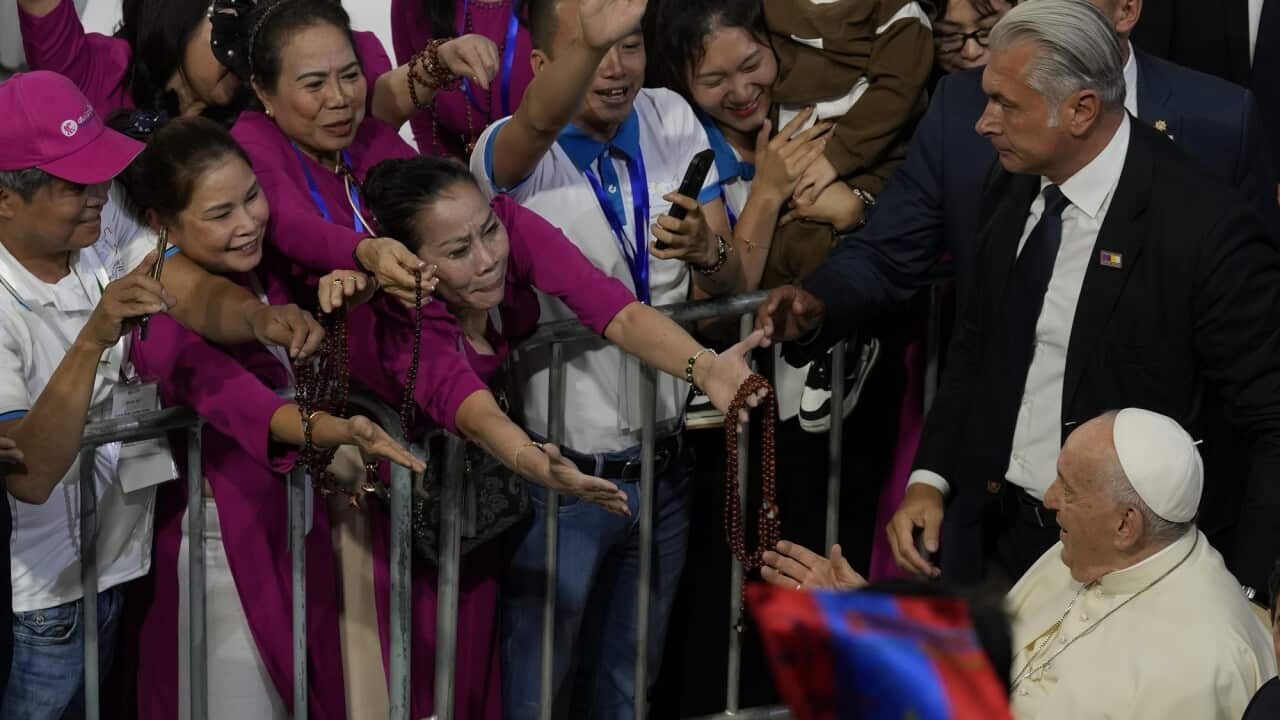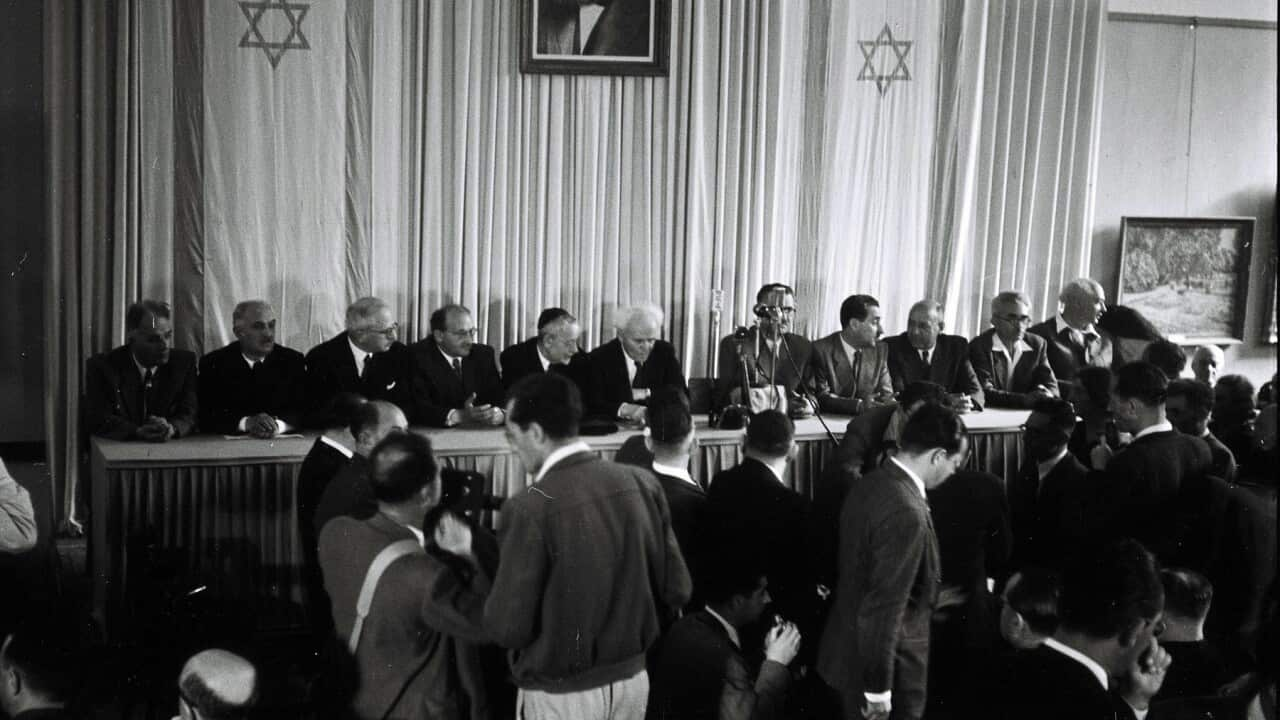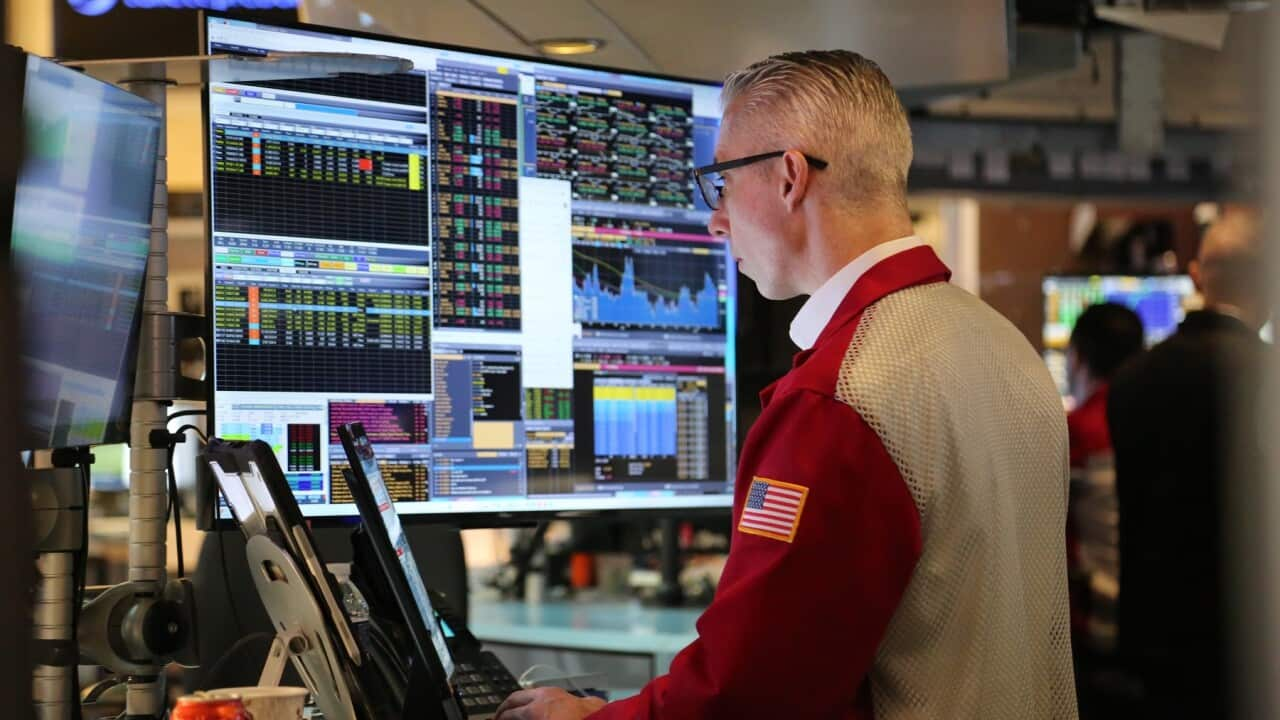TRANSCRIPT:
Mongolia, with a population of approximately 3.3 million, is renowned for its ancient nomadic civilisations and its founding father, Genghis Khan.
But little is it known that nestled within its vast landscapes exists a tiny Catholic community, comprising fewer than 2,000 adherents.
Pope Francis paid them a visit.
It's the first time a pontiff has made a trip to the country.
Upon his arrival for the four-day visit, the pontiff waved to a small crowd of people in the capital Ulaanbaatar before signing the guestbook at the State Palace.
He was met by Mongolia's President, Ukhnaagiin Khurelsukh, who welcomed him with much pomp and circumstance.
The Pope and President Khurelsukh visited what’s called a ger or a yurt, a portable round tent covered with animal skins, set up inside the state palace.
"I am honoured to be here, happy to have journeyed to this remarkable and vast land, and to a people who understand the value of making a journey, and its significance. We see this in your traditional dwellings, the ger, fine travelling homes. I would like to imagine myself entering for the first time, with respect and excitement, one of these circular tents that dot the majestic Mongolian lands, in order to meet and become better acquainted with you. So here I am, standing at your door, a pilgrim of friendship, who comes to you quietly, with a joyful heart and the desire to find myself humanly enriched in your presence."
It wasn’t until 1992 that the Catholic Church was officially recognised in Mongolia.
It was in that year that the country became a democracy, adopting a new constitution that guaranteed religious freedom following the collapse of the Soviet Union.
Today, Mongolia has six Catholic churches and a resident bishop within its borders.
For Catholics, the papal visit was a source of immense joy and celebration.
Cardinal Giorgio Marengo is the Apostolic Prefect of Ulaanbaatar.
"Holy Father, we are about to receive your blessing at the end of the Eucharist, celebrated in Mongolia for the first time by the Successor of St Peter. Your presence here is for us a source of deep emotion, difficult to express in words."
Saikhatsegtseg Sukhbaatar is an education worker and Catholic devotee from Mongolia.
"I am so happy that the Pope Francis visited Mongolia. I got emotional when I attended the Holy Mass. I think it’s furthered my spirit. I am very thankful."
Darinchuluun Erdenebaatar is also a Mongolian Catholic.
"There are so many people from different countries here. Personally I am extremely excited for the visit of His Holiness. This was deeply meaningful for Mongolians and the rest of the world. This was such a great event."
The Pope’s visit was not just about spirituality; it carries significant geopolitical weight.
During his four-day visit, Pope Francis engaged in high-level discussions with political leaders in order to bridge the gap between Mongolia, its neighbours China and Russia, and other global players.
Up until 1921, Mongolia was claimed by China. After that point it became a one-party state closely tied to the Soviet Union until 1919 before becoming a democracy.
Jargailsaikhan Dambadarjaa is a political analyst from Mongolia.
He says China's crackdown on religious minorities has been an underlying issue throughout the Pope's visit.
"Unlike many other countries, we have only two neighbours. They are most they are the superpowers. And we have also friendly relations with other countries. Call we call them the third neighbours. Okay, they're virtually third neighbours. And it's important that these head of states have our third neighbours coming to Mongolia, including the one and including this one... and that's why I think it will be another serious step forward for the world to understand Mongolia, Mongolian foreign policy."
On the final day of his visit, Pope Francis presided over a mass where just about the entire Catholic population of the country were in the same room: the Steppe Arena in the capital.
At the end of the mass, he asked former and current archbishops of Hong Kong, Cardinal John Tong Hon and Archbishop Stephen Chow to stand beside him.
In unscripted comments, he sent greetings to China, calling its citizens a "noble" people and asking Catholics in China to be "good Christians and good citizens".
"These two brother bishops, the bishop emeritus of Hong Kong and the current bishop of Hong Kong: I would like to take advantage of their presence to send a warm greeting to the noble Chinese people. To all the people I wish the best, and to go forward, always moving forward. And I ask Chinese Catholics to be good Christians and good citizens. To all."
On his third day of his trip, he made remarks that appeared to be aimed at China, saying governments have nothing to fear from the Catholic Church because it has no political agenda.
A telegram greeting sent by the Pope to President Xi Jinping, offering him "divine blessings of unity and peace" was acknowledged by China’s foreign ministry who said it showed "friendliness and goodwill".
During his address at Sunday mass, he also spoke of the numerous conflicts ongoing around the world.
"May Heaven grant that today, on this earth devastated by countless conflicts, there be a renewal of the conditions of what was once the Mongol peace with respect of international laws - in other words, the absence of conflict. To quote one of your proverbs: 'the clouds may pass away, but the sky will remain'.
"May the dark clouds of war be dispelled, swept away by the firm desire for a universal fraternity wherein tensions are resolved through meetings and dialogue, and the fundamental rights of all people are guaranteed! Here, in this country so rich with history and atmosphere, let us implore this gift from on High, and together let us strive to build a future of peace."













